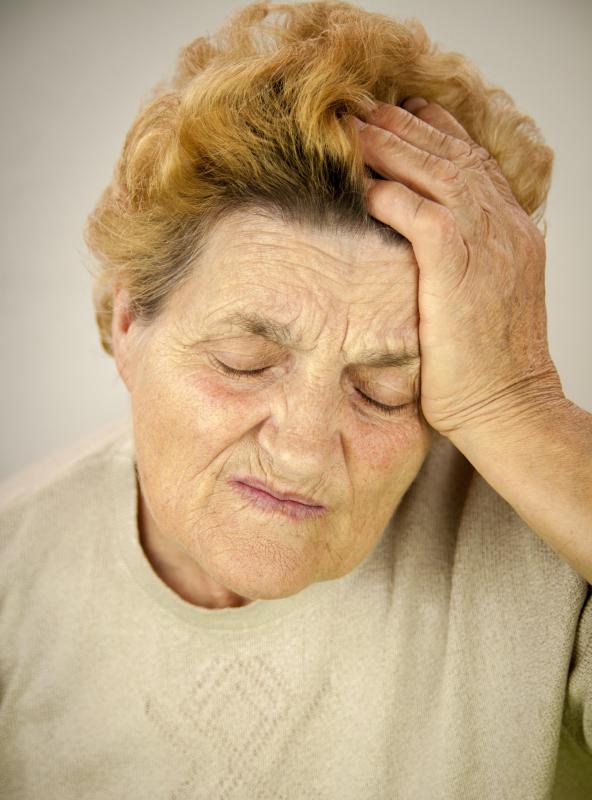At WiseGEEK, we're committed to delivering accurate, trustworthy information. Our expert-authored content is rigorously fact-checked and sourced from credible authorities. Discover how we uphold the highest standards in providing you with reliable knowledge.
What Are the Different Types of Smell Disorders?
There are two main groups of smell disorders, or smelling disorders. In one, the sense of smell may be distorted, so that a pleasant scent may seem disgusting, and this type of smell disorder is called dysosmia. The other group of smell disorders is associated with a reduction in the sense of smell. This is known as hyposmia or, if the sense of smell is completely lost, anosmia. Since olfaction, or smelling, is a large part of what gives food its taste, a smell disorder will often be accompanied by a taste disorder.
A smell disorder may be specific, in that it only affects a single scent or a small number of scents. Other smell disorders are described as partial, because they affect a range of scents, but not all scents. In those cases where every odor is affected by the disorder, it is described as total.

Anosmia and hyposmia are both smell disorders that can be caused by heavy smoking. They may also occur in association with nasal infections, head injuries and diseases such as Alzheimer's. The sense of smell also decreases as a result of the normal aging process.
Dysosmia, where the sense of smell is distorted, can be subdivided into several different types. Phantosmia is a type of dysosmia in which a person detects the presence of an odor when it is not actually present. It can be caused by colds, head injuries, migraines or diseases such as Parkinson's. Parosmia, another kind of dysosmia, describes the sort of smell distortion in which a pleasant aroma seems foul. It can be caused by a sinus infection, and is sometimes associated with depression.

Olfactory agnosia is another type of dysosmia and it involves a loss of the ability to identify smells. The term agnosia can also describe an inability to recognize other things such as people and objects. Olfactory agnosia may be caused by a defect in the brain.
Smell disorders can arise from problems at different points in the pathway along which scent molecules are inhaled, detected and evaluated. Early in the pathway, conditions such as nasal polyps may block the nasal passages, preventing scent molecules from reaching the olfactory nerves at the back of the nose. Further along the pathway, the olfactory nerves may be damaged. At the highest point of the pathway, those parts of the brain that process smells could be injured or diseased. Hormonal problems, such as thyroid disease, can also affect the sense of smell.
AS FEATURED ON:
AS FEATURED ON:

















Discussion Comments
If you hallucinate bad smelling things you might have parosmia which is a disorder in which you imagine bad smells that don't exist. Parosmia can be caused by not having enough zinc in your diet or a chronic sinus infection.
Post your comments